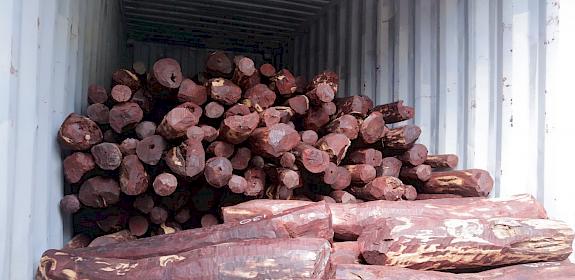Cross-border intelligence-sharing leads to major seizure in Thailand
Bangkok, Thailand, 30 January 2008 - The ASEAN Wildlife Enforcement Network (ASEAN-WEN) is to support and help widen an investigation into an organized wildlife crime syndicate after yesterday's seizure of 11 dead Tigers, Leopards and Clouded Leopards, as well as 275 live pangolins from Khub Pung village of Tambon Nam Kham in Thailand, near the border with Lao PDR.

The big cats, all wild-caught, are believed to have originated from southern Thailand or Malaysia, although this is still under investigation. The Royal Thai Navy's Khong River Coast Guard seized the pangolins from one truck and the six dead Tigers, three Leopards and two Clouded Leopards from another truck at 3 a.m. yesterday.
Most of the big cats had been cut in half and their organs removed. They were about to be loaded into boats bound for Lao PDR, for delivery to customers from VietNam and China.
PeunPa (a Thai wildlife conservation foundation) confirms the seizure was made possible as a result of cross-border information-sharing under ASEAN-WEN, with assistance from the ASEAN-WEN Support Program. Thailand's ASEAN-WEN Task Force will meet with international investigators this Friday to discuss next steps in their efforts to track down the traffickers.
South-east Asia is targeted by poachers and illegal wildlife traders for its rich biodiversity and ease of movement between countries. In 2006, Thailand took the initiative to set up the ASEAN-WEN to combat the growing menace of cross-border wildlife crime in the region. The ASEAN-WEN aims to create a strong law enforcement response against poachers and traders who operate across countries throughout South-east Asia.
Wildlife Alliance, PeunPa (Thailand) and TRAFFIC have formed the ASEAN-WEN Support Program and are providing technical and financial assistance to ASEAN-WEN. The Support Program congratulates the Thai police agencies that worked together to make this major seizure, which once again highlights the trans-national nature of wildlife crime. "We now need to help authorities find out who was behind this and many other illegal cross-border shipments of this region's endangered species", said Steve Galster, Director of Field Operations for partner organizations PeunPa and Wildlife Alliance.
According to TRAFFIC’s Senior Programme Officer in South-east Asia, Chris R. Shepherd, “The trade in endangered species across the Malaysian-Thailand border is a serious issue, involving large volumes of wildlife, and requires full co-operation of all enforcement agencies on both sides of the border”.




